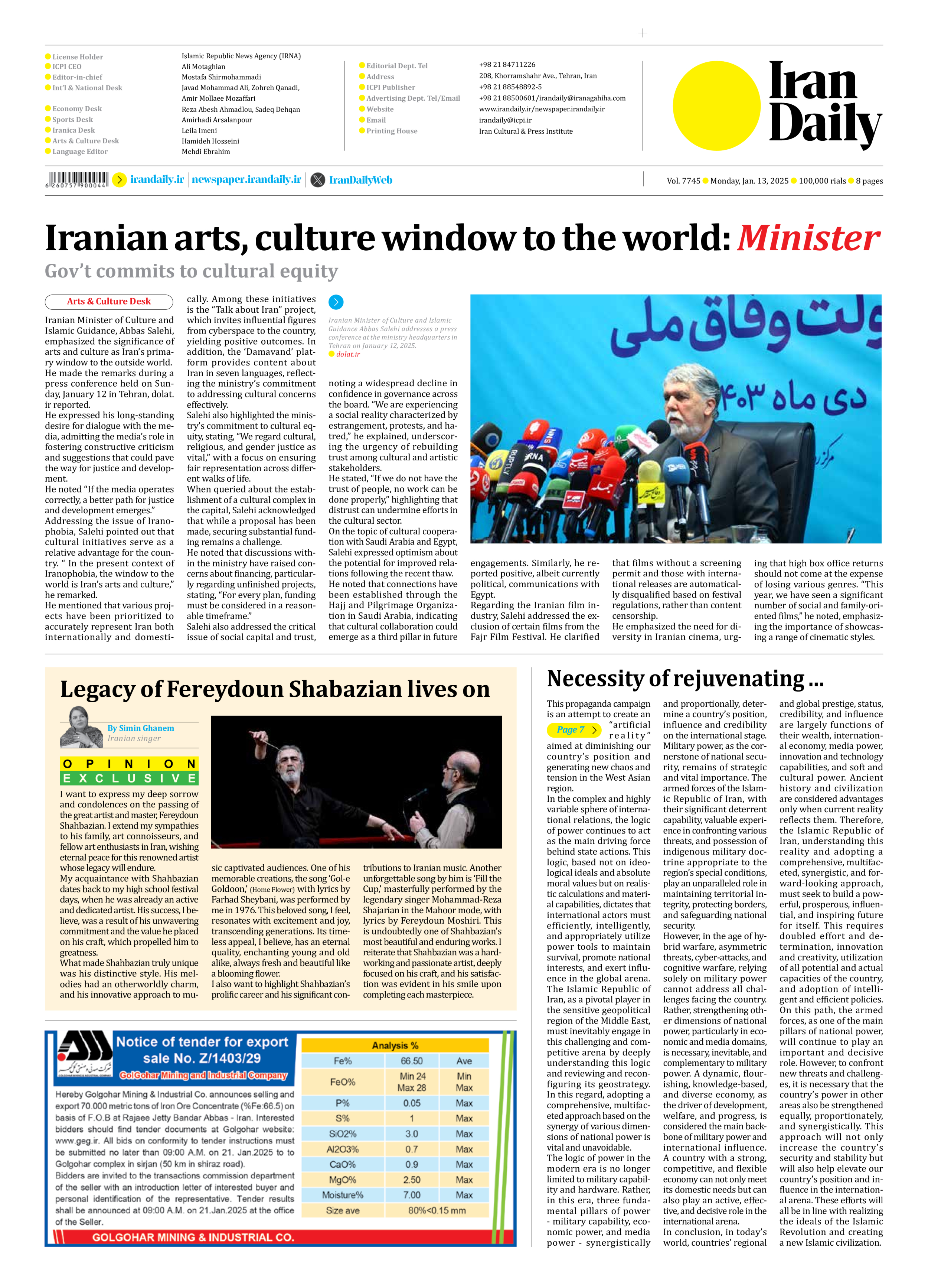
Necessity of rejuvenating ...
Page 1
This propaganda campaign is an attempt to create an “artificial reality” aimed at diminishing our country’s position and generating new chaos and tension in the West Asian region.
In the complex and highly variable sphere of international relations, the logic of power continues to act as the main driving force behind state actions. This logic, based not on ideological ideals and absolute moral values but on realistic calculations and material capabilities, dictates that international actors must efficiently, intelligently, and appropriately utilize power tools to maintain survival, promote national interests, and exert influence in the global arena. The Islamic Republic of Iran, as a pivotal player in the sensitive geopolitical region of the Middle East, must inevitably engage in this challenging and competitive arena by deeply understanding this logic and reviewing and reconfiguring its geostrategy. In this regard, adopting a comprehensive, multifaceted approach based on the synergy of various dimensions of national power is vital and unavoidable.
The logic of power in the modern era is no longer limited to military capability and hardware. Rather, in this era, three fundamental pillars of power - military capability, economic power, and media power - synergistically and proportionally, determine a country’s position, influence and credibility on the international stage. Military power, as the cornerstone of national security, remains of strategic and vital importance. The armed forces of the Islamic Republic of Iran, with their significant deterrent capability, valuable experience in confronting various threats, and possession of indigenous military doctrine appropriate to the region’s special conditions, play an unparalleled role in maintaining territorial integrity, protecting borders, and safeguarding national security.
However, in the age of hybrid warfare, asymmetric threats, cyber-attacks, and cognitive warfare, relying solely on military power cannot address all challenges facing the country. Rather, strengthening other dimensions of national power, particularly in economic and media domains, is necessary, inevitable, and complementary to military power. A dynamic, flourishing, knowledge-based, and diverse economy, as the driver of development, welfare, and progress, is considered the main backbone of military power and international influence. A country with a strong, competitive, and flexible economy can not only meet its domestic needs but can also play an active, effective, and decisive role in the international arena.
In conclusion, in today’s world, countries’ regional and global prestige, status, credibility, and influence are largely functions of their wealth, international economy, media power, innovation and technology capabilities, and soft and cultural power. Ancient history and civilization are considered advantages only when current reality reflects them. Therefore, the Islamic Republic of Iran, understanding this reality and adopting a comprehensive, multifaceted, synergistic, and forward-looking approach, must seek to build a powerful, prosperous, influential, and inspiring future for itself. This requires doubled effort and determination, innovation and creativity, utilization of all potential and actual capacities of the country, and adoption of intelligent and efficient policies. On this path, the armed forces, as one of the main pillars of national power, will continue to play an important and decisive role. However, to confront new threats and challenges, it is necessary that the country’s power in other areas also be strengthened equally, proportionately, and synergistically. This approach will not only increase the country’s security and stability but will also help elevate our country’s position and influence in the international arena. These efforts will all be in line with realizing the ideals of the Islamic Revolution and creating a new Islamic civilization.







